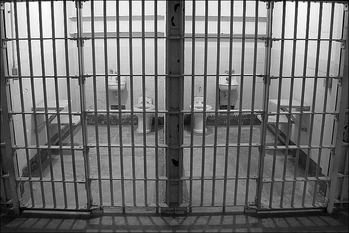
But when that happens, it’s probably good to pay attention.
All four were among 114 people who signed an appeal to President Barack Obama in recent days
| | to use his powers to commute the sentence of a Utah man convicted of drug dealing, money laundering and the possession of a firearm while trafficking drugs. If that all seems a little incongruent — as if you might have walked through the looking glass or had a bad dream after eating pizza before bed — it’s because the principles of good government sometimes force people to embrace the imperfect in order to safeguard freedom. Judges occasionally have to let criminals go because police confiscated evidence without a warrant, just to protect the rest of us from being searched without probable cause. Governments occasionally have to let Nazis hold parades in deference to free speech and assembly. And when someone is sentenced to 55 years in prison because of a law that takes away a judge’s ability to judge … well, it may be considered cruel and unusual punishment, and it certainly is not a good way to run a criminal justice system. All of which is not to say Weldon Angelos, the drug dealer in question, is a choirboy. Eleven years ago, Salt Lake police suspected Angelos of selling drugs and being a gang member, so they set up a sting operation. Twice, an informant bought marijuana from Angelos, and each time he said he saw a firearm nearby. Police then searched Angelos’ home and found more guns and evidence of money laundering and drug dealing. By the time Angelos came up for sentencing before federal Judge Paul Cassell, he was 23 years old. He deserved jail time, but because of a federal law that requires at least five years for the first conviction of possessing a firearm during a drug transaction and 25 years for each additional count, Cassell had no choice. The two drug deals plus the discovery of weapons during a search of his home added up to 55 years in the slammer. At the time, Cassell made the unusual move of criticizing his own sentence from the bench, calling it “unjust, cruel and even irrational.” If Angelos had been tried in a state court instead of a federal one, he probably would have served five to seven years. As it stands now, he will be locked away until he is 78 (there is no parole in the federal system). The irony is that Angelos would be out sooner had he committed rape, hijacked an airplane or even committed some acts of terrorism. Many murderers serve lighter sentences that what he faces. Which is why even Utah Sen. Orrin Hatch told Fox News, “We can’t put a fellow like that in jail for 55 years.” Utahns have been down similar paths before. About the time Angelos was dealing drugs, President Bill Clinton reacted to similar pressure by commuting Utahn Cory Stringfellow, who had been convicted of transporting LSD across state lines and then fled to England while awaiting sentencing. Clinton may have been moved by the fact Stringfellow earned a master’s degree while behind bars. Or he may just have realized the nation has little to gain by treating all young offenders of a certain type as if they are irretrievably depraved. Criminal justice is no exact science. In all but the worst cases, however, the goal should be to rehabilitate. When lawmakers pass minimum mandatory sentences, they empower prosecutors even as they strip power from judges. Prosecutors determine charges and decide whether to try cases in federal court. Judges can then apply only cookie-cutter sentences to those who are convicted. The 10th Circuit Court of Appeals has upheld Angelos’ sentence. The U.S. Supreme Court declined to hear an appeal. His only hope now is for commutation by a president who ought to appreciate a rare instance of liberal and conservative agreement. |

 RSS Feed
RSS Feed

